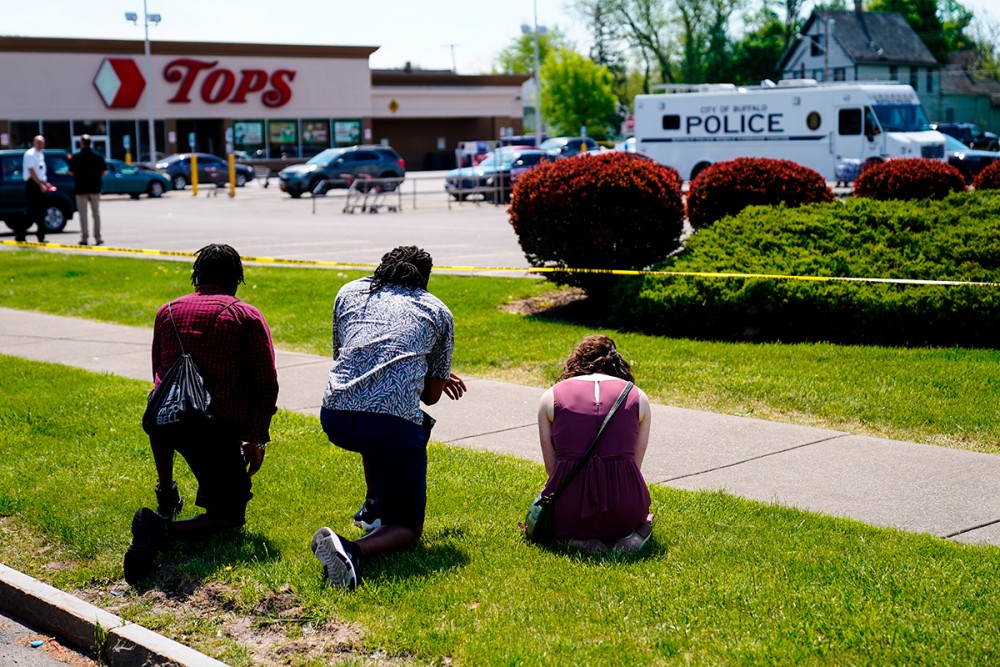The mass shooting in Buffalo was an attack on the image of God
And it was enabled by social structures of permission.

In Buffalo, New York, ten people created in the image of God, all of them Black, were killed last month in a racially motivated attack.
The phrase “the image of God” (tselem Elokim) is found so regularly upon our lips as Jews—and the lips of our Christian neighbors—that we should pause and think again about its origin and its meaning. The reason the Torah prohibits making an image of God is because the Kadosh Barukh Hu (the Holy One, blessed be He) has made an image of his very self: the human being. As Rabbi Akiva, martyred by Hadrian in 137, taught, haviv (precious) are humans because they are created in God’s image.
“Beloved is the human for the human was created in the Image of God,” says Rabbi Akiva in the Mishna. “A greater love was bestowed upon the human, for the human is created in the Image, for it is written, in the Image of God made He the human Adam.” Thus, according to Rabbi Akiva, not only is the adam, the human, created in the divine image, which is a factual determination of the Torah, but the fact that the human is created by God is the very reason the human is beloved by God. Creation is an act of love. Hence, Rabbi Akiva emphasizes that “the human was accorded a greater love.”




